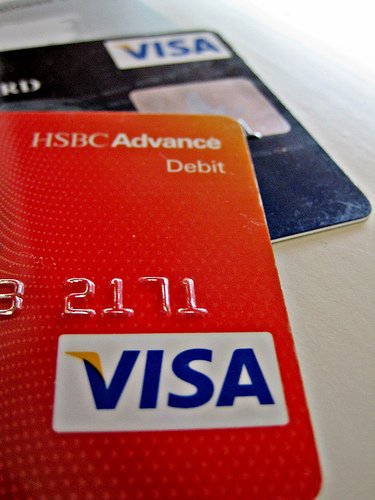Modern man actively travels around the world — on business trips and on vacation. Of course, when traveling, you often have to spend money, and first of all in foreign currency, in euros and dollars. What could be more convenient than a plastic card for constant spending abroad?
However, often abroad, credit cards can cause as many problems as amenities. Surely you have heard hundreds of stories about how credit cards are stolen, how money disappears from them — in a word, "plastic horrors". Let me tell you how to avoid such problems.

- First of all, I advise you to get two credit cards and connect to a mobile bank (all fairly large banks have one). The first bank card (let's call it a "workhorse") is intended for constant spending. She needs to pay in cafes, restaurants, shops, hotels. The second bank card (let it be "business") is intended for replenishing accounts in various services, paying for plane tickets, communication services, serious purchases. As you know, most often unscrupulous employees steal from cards in various cafes and inexpensive hotels — that's why we will give them a "workhorse". Scammers will not have much to profit from — small and quite specific amounts appear on the card for various expenses, and the card itself should be as simple as possible and not a credit card (Visa Electron or the most inexpensive MasterCard). A "business" card will help you save money on large purchases and store bonus miles on flights. Both cards must be connected via telebank. Train yourself not to keep large sums on plastic (well, unless you can keep a couple of hundred dollars on a "business" card all the time for a spontaneous purchase). It is impossible to steal money from a telebank, but it is quite possible to withdraw it from a credit card. Therefore, my advice is to keep all the money in the telebank account, transferring the right amount to the right card. We arrived in New York and were going to go out into the city - throw off $ 200-300 for a "workhorse" and pay it. In the evening, we returned to the hotel and transferred the balance from it back to the account (I imagine the face of a fraudulent waiter who wrote off the card number and will try to withdraw a couple of dollars from it at night). Are you going to buy something serious and big? Transfer money to a card from the telebank right before buying, you probably have a smartphone or tablet at hand. To many, this approach will seem paranoid, but do not rush to laugh — usually those who have never encountered carding and other types of fraud smile. It's better to spend a couple of minutes fiddling with the telebank than to worry about the missing money later.
- Be sure to connect SMS notifications about all outgoing plastic operations. If there is still a problem and money is withdrawn from you, you will find out about it just a few minutes after the operation and you will be able to make a moneyback.
- For the workhorse, set a daily withdrawal limit.
- On the back of any plastic there is a number of the bank's support service. Write it down in your phone book and write it down on a piece of paper (which you can put in your wallet or document holder). What do those who suddenly steal a card do? That's right, they are going to call the bank in order to block it. And where is the bank's phone number written? On the card itself, which is just stolen. Be smarter.
- Despite the fact that it is much more convenient to pay with a credit card than with cash, you still have a few banknotes and small change in order to pay for yourself in places that are not trustworthy.
- If there is not enough money, and, for example, a restaurant seems suspicious — do not give the card into the hands of the waiter, go with him to the counter and follow the operations personally. Usually, when a customer watches all the manipulations, the cashier instantly loses the desire to cheat.
- Look carefully at the receipt that is brought to you for signature. It should have the correct amount and your card number on it. Look at the sum, are all the commas and dots where they should be? Remember that in the west, digits are separated by commas, and fractions are separated by dots. If we have 13.200, 23 (Thirteen thousand two hundred and twenty—three tenths), then they have 13,200.20. With discharges, they often try to "heat up" inexperienced tourists - they can write off an amount from the card that is a hundred times more than necessary, and it will be extremely difficult to return the money.
- Do not withdraw money from street ATMs — skimmers (devices placed on card acceptance trays and imperceptibly removing credit card data) can easily stand on them. If you need to withdraw money, go to the bank branch. In some countries, fraudsters can even make a fake ATM, and all in order to find out your credit card number and PIN code. In Asia, a funny kind of fraud is often used, which is called the "Lebanese loop" — the tray of the issuing device is sealed with tape. The money was withdrawn from the card, but the cash did not appear — the cardholder goes to the bank, complains about a broken ATM, and the fraudster peels off the tape and takes the money.
- After the trip, check the statements of transactions with the account, and at the slightest suspicion, immediately contact the bank for clarification and demand moneyback.
Following these simple rules allows you to protect yourself almost 100%. Be vigilant and careful, and then only you will use your credit cards.
